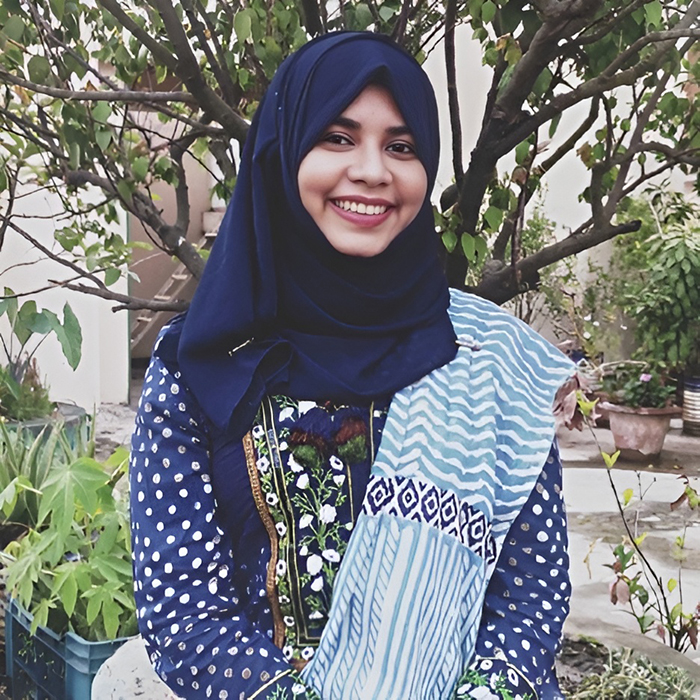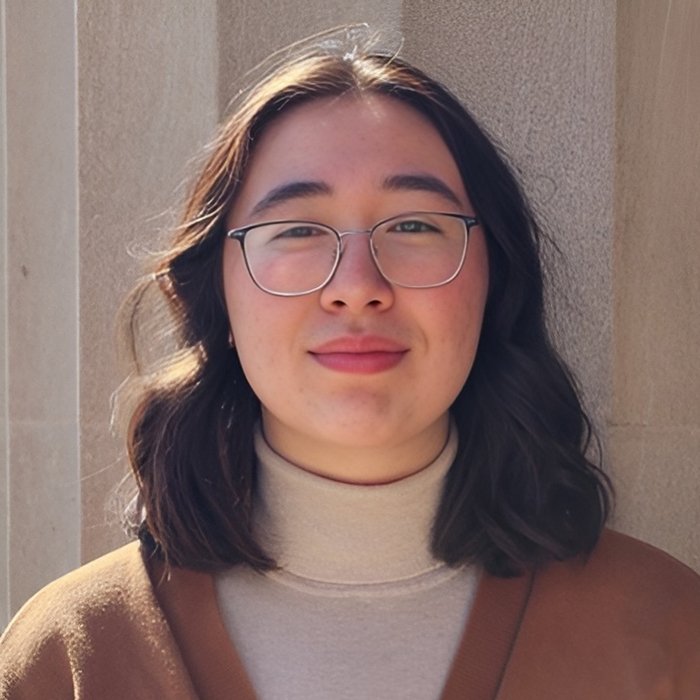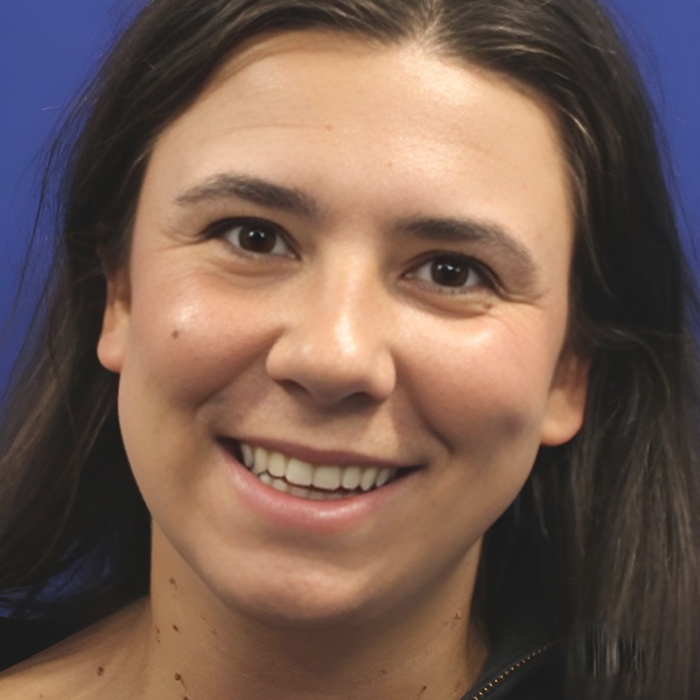Genomics Cohort Training—2025-2026
Summer 2025
Students who needed preparation for their fall matriculation into the program took a summer bridging course DSCC 162: Data Structures in Python with Andrea Cogliatti.
At the end of the summer, students were invited to participate in the annual biomedical hackathon.
Fall 2025
Students participated in 13 credits of coursework. Based on previous feedback, BIO 457: Applied Genomics course is being taken now in the first semester and DSCC 461: Database Systems course has been moved to the third semester of study. During the first semester the students took the following courses:
- BIO 457: Applied Genomics, Professor Amanda Larracuente
- DSCC 462: Computational Introduction to Statistics, Professor Anson Kahng
- DSCC 440: Data Mining, Professor Monika Polak
- IND 501: SMD Research Ethics, Professor Jonathan Herrington
A pre-program survey was done by Cathy Cerosaletti to assess the cohort’s understanding and experiences and competency with research, ethics, equity and inclusion, genomics and career development skills.
Other events that happened during the semester included:
- Attending poster presentations by the previous cohort during Meliora Weekend.
- Connecting with mentors at a mentor meetup.
- Attending a biotech career panel organized by Professor Justin Fay with panelists from Charles River Laboratories, GenScript, Novo Nordisk, and Calvery Holdings.
- Attending a bioinformatics career session hosted by the bioinformatics core staff at the Genomics Research Center.
Winter 2026
A sequence of three extra-curricular, hands-on workshops aimed at building core competencies in genomic data analysis were offered by the Genomics Research Center (GRC) in conjunction with the Goergen Institute for Data Science GIDS-REM fellowship program and the Center for Integrated Research Computing (CIRC). These workshops covered nine core competencies were required for GIDS-REM fellows were open to any researchers in the University of Rochester and Medical Center communities.
An introductory session on Monday, January 12 from 10 a.m.-3:30 p.m. by Professor Brendan Mort and staff of CIRC at the Vista Collaboratory in Carlson Library was required for those who needed Blue Hive access or basic knowledge of Linux clusters, running Jobs and Slurm, Modules, Software, and Jupyter.
The workshops were two hours each and led by John Ashton and staff of GRC:
- Tuesday, January 13: Experimental Design and GRC deliverables. This workshop introduces experimental design considerations in the generation of high throughput sequencing data including RNAseq, ChIP-seq (and related -seq technologies).
- Wednesday, January 14: Bulk RNAseq. This workshop introduces quality control in bulk RNA sequencing experiments and best practices in RNA seq analysis.
- Thursday, January 15: Single cell sequencing. This workshop introduces single cell RNAseq and ATACseq data generation and analysis.
Spring 2026
Students returned to studies with 12 credits of coursework taking:
- DSCC 465: Introduction to Statistical Machine Learning, Professor Cantay Caliskan
- BST 434: Genomic Data Analysis, Professor Matthew McCall
- BIOL 453: Computational Biology, Professor Justin Fay
Mentor meetings were used to start discussions about summer internship placements.
Summer 2026
Students engage full-time in their internships and lab’s research assignments.
Professor Fay will lead the Summer Seminar Series—a weekly venue to learn and engage in applied problems in genomics. The series includes short presentations from students, trainees and faculty on current research problems with an emphasis on pragmatic solutions. Presentations will be followed by a discussion to enhance practical understanding and assessment of genomics approaches, methods and computational analyses. The seminar series will be run as part of the Goergen Institute for Data Science MS program in applied genomics and open to students and faculty interested in application of genomics and genome technologies to problems in biology.
The seminar series will also included a professional development component for students in the GIDS-REM training program. For this component students learn and assess presentation strategies and research communication skills to enhance their career goals in either academics or industry. (Seminar schedule TBA)
At the end of the summer, students will participate in the annual Biomedical Data Science Hackathon.
Fall 2026
Students enroll in:
- DSCC 483: Practicum Project, Professors Ajay Anand and Cantay Caliskan
- DSCC 461: Database Systems, Professor Eustrat Zhupa
Conference Travel
The cohort is considering attending one of the following conferences: TBD
Practicum Project
Fall presentations will be posted as they become available.




